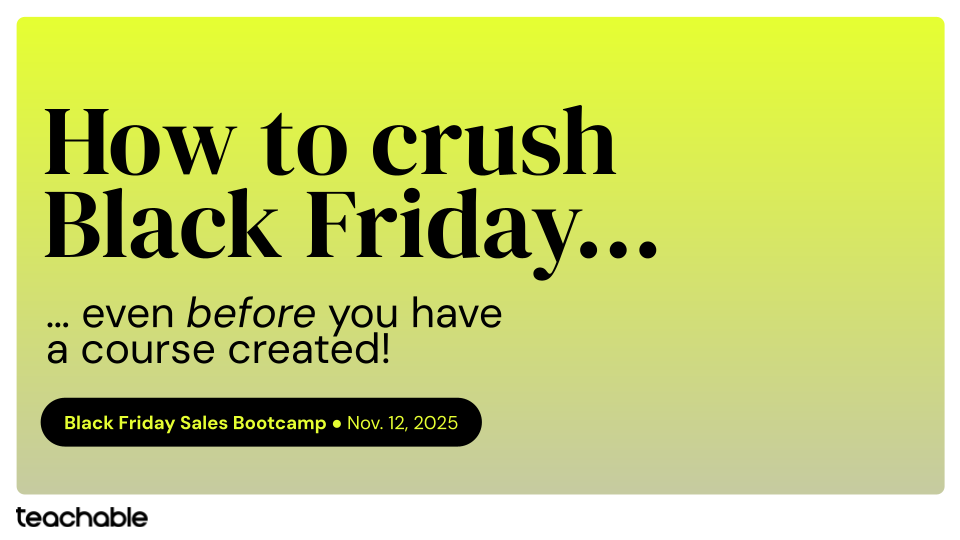Ebooks are underrated marketing tools for online businesses. Creators can make ebooks at a relatively low cost and sell them or offer them for free as a lead magnet. However, to get all the benefits that come with them, you’ll need to get your book in front of the right audience. In other words, you need to have a strong ebook marketing strategy.
If you’ve created an ebook and it’s not getting as many views or downloads as you’d like, these ebook marketing strategies can help.
What is an ebook?
An ebook is simply an electronic book. You can download ebooks and read them online via your laptop, tablet, phone, Kindle, or other device.
Many authors and creators write ebooks because they’re usually easier and more cost-effective to create and publish online. Publishing a physical book comes with extra costs like inventory, printing, and shipping.
Anything can be an ebook, including novels. Many indie authors begin by self-publishing long-form books online first. However, most creators make short-form ebooks (between 5,000-25,000 words) that focus on a specific topic. They usually sell them and make some ongoing income or they offer them for free to generate leads for their business.
For example, Julia McCoy teaches courses on writing and coaches content creators. She runs Content Hackers and has several ebooks that focus on the topics she knows best. Her Content Writer’s Handbook includes tips on writing for blogs, email, social media, and other platforms.
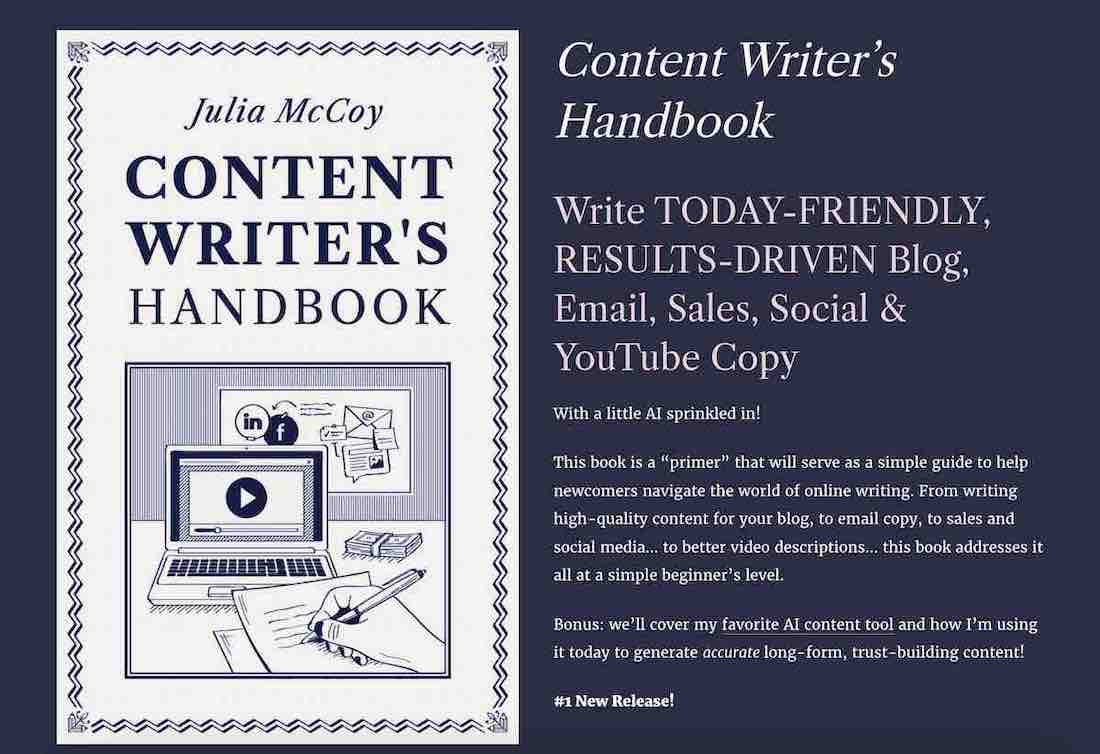
How ebooks help creators
There are many benefits that come with creating an ebook. But, these are the three primary reasons creators should consider ebooks:
- Demonstrate your expertise and authority: A lot of work goes into creating a book, but it also documents your knowledge.
- Make money online: In the U.S., there was over $1.1 billion in ebook sales revenue last year. Like other digital products, creators can make money online by offering their knowledge in book format. Although, how much you make varies.
- Generate leads: An ebook can help you generate leads, primarily by collecting an email in exchange for downloading free content. If your content is valuable to your audience, they’ll be more than willing to sign up for your email list, re-engage, and possibly buy a product later.
How to market an ebook: 12 ebook marketing strategies
There are many tactics you can use to promote a book, but the most effective strategies for you depend on your budget, niche, and audience. These tips for how to market an ebook can help you get started at little to no cost.
1. Set yourself up for success
Before we get into the nitty-gritty of marketing an ebook, it’s important to understand what makes an attractive ebook. No amount of promotion will help if the core product is not interesting to your target audience.
Here are some general ebook tips that will help you set yourself up for success:
- Verify your topic: Think about the questions your audience often asks you or the pain points they’re experiencing. Do you have the expertise to help them? If so, it could be a strong idea for an ebook.
- Tap into trends: View sites like Exploding Topics or Google Trends to discover in-demand topics.
- Use a compelling title: A good ebook title is straightforward and gets people curious to learn more.
- Create an eye-catching cover: People judge books by their cover, even though we try not to.
- Include imagery that reflects your brand: Design influences 94% of first impressions, so you’ll need a strong design for your ebook. There are many tools to create ebooks or you can work with a freelance designer to craft a visually appealing book.
You’ll also need to create a high-converting landing page that houses your ebook. Include a preview of the book with images, a short list of what they’ll learn or accomplish by reading, and a form with a call-to-action (CTA) button. Your CTA will vary depending on if you’re selling or offering it for free.
If you use Teachable, you can easily upload and sell an ebook by using our digital downloads feature.
2. Include original research if possible
If you have the resources, produce original data and research for your ebook. Statistics are some of the most popular types of content that people share naturally. People often link back to websites and sources within their own content, so they’re likely to share your findings.
For example, let’s say you offer online courses and run a community of thousands of freelancers. You could conduct an annual study on freelancer rates, income, and more. Then, package up your findings in an ebook that includes charts, graphs, and other visuals that support your data.
3. Partner with a like-minded creator or brand
You’ll likely promote your ebook among your existing audience, which may include your social media followers, email subscribers, course students, or your personal network. Although your audience is more likely to be engaged and cares most about your content, your reach is probably limited.
Alternatively, you can co-author your book. When you partner with other brands or creators, you can tap into their audiences as well. Each partner should promote the book within their network.
Partners might also provide resources and expertise that supplement your own, which can improve the overall quality of your content. For example, the Content Marketing Institute partnered with MarketingProfs for its annual State of B2B report. Both organizations have similar audiences (marketers) and collaborated on gathering survey data and content.
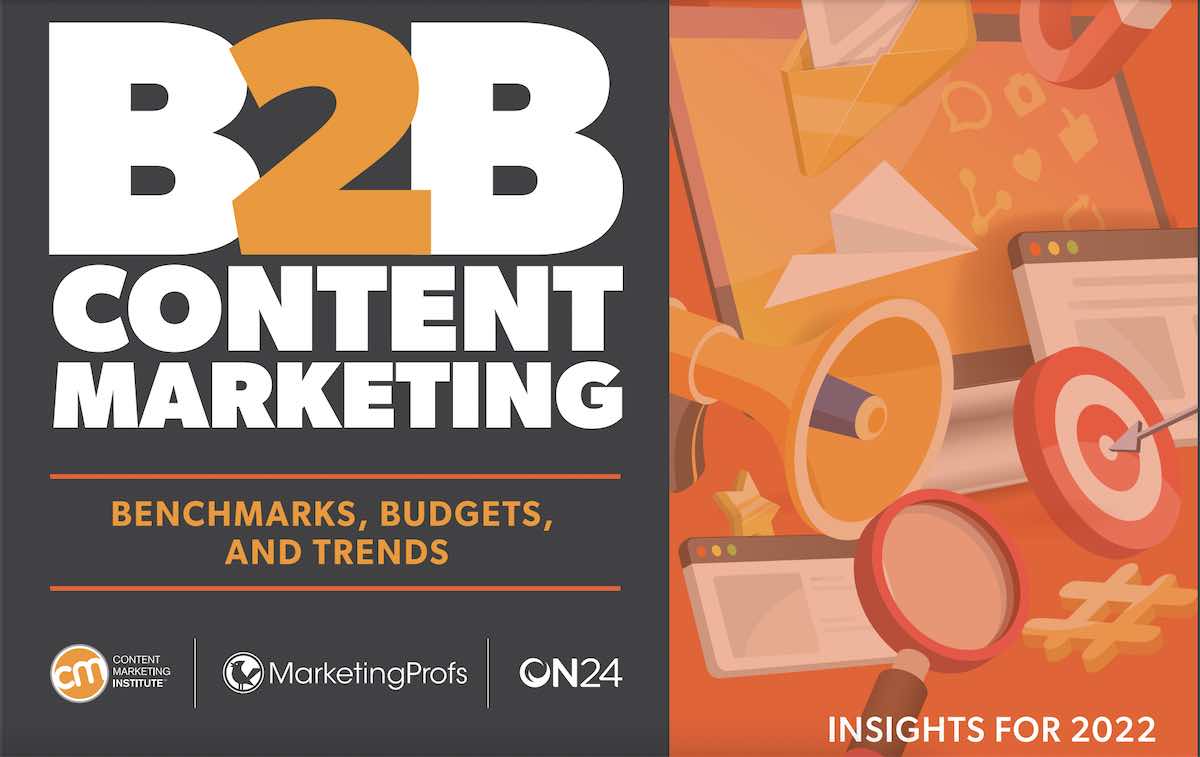
Partnering can be a mutually beneficial relationship that helps you promote your book at little to no extra cost. However, each partner should provide value by sharing expertise, data, marketing responsibilities, or other assistance.
4. Send books to influencers for review
Trends like #BookTok have exploded with over 150 billion views on TikTok. Although #BookTok is most associated with novels and physical books, you can apply similar tactics for your ebook marketing.
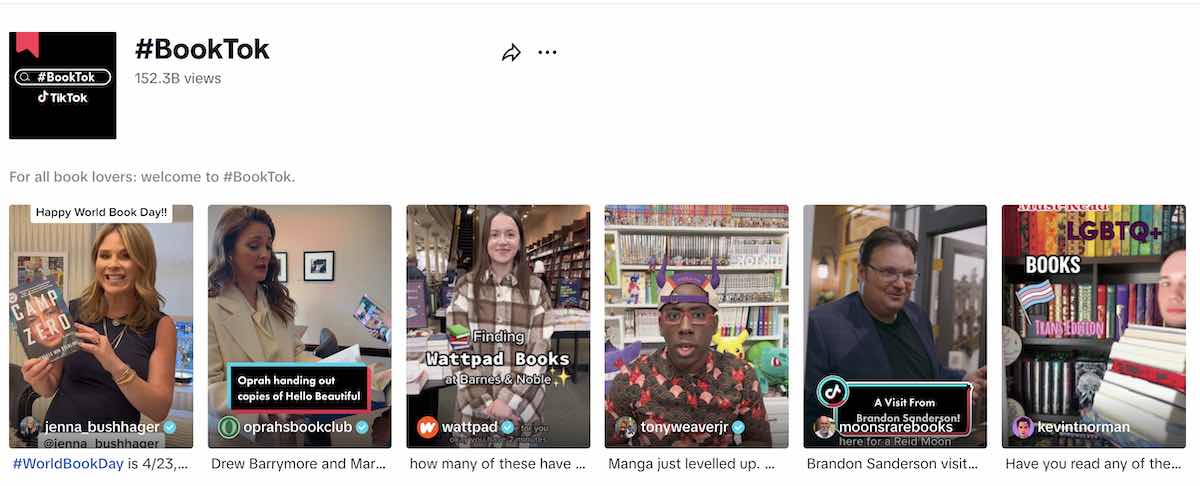
Of course, you don’t want to spam influencers in unrelated industries and ask them to review your book. However, some influencers within your niche or others who have read your book and liked it may be open to doing a review on social media.
There are also several platforms that have influencer programs, where book reviewers can sign up and get paid to share book reviews. Some sites like Booksprout and Booksirens.
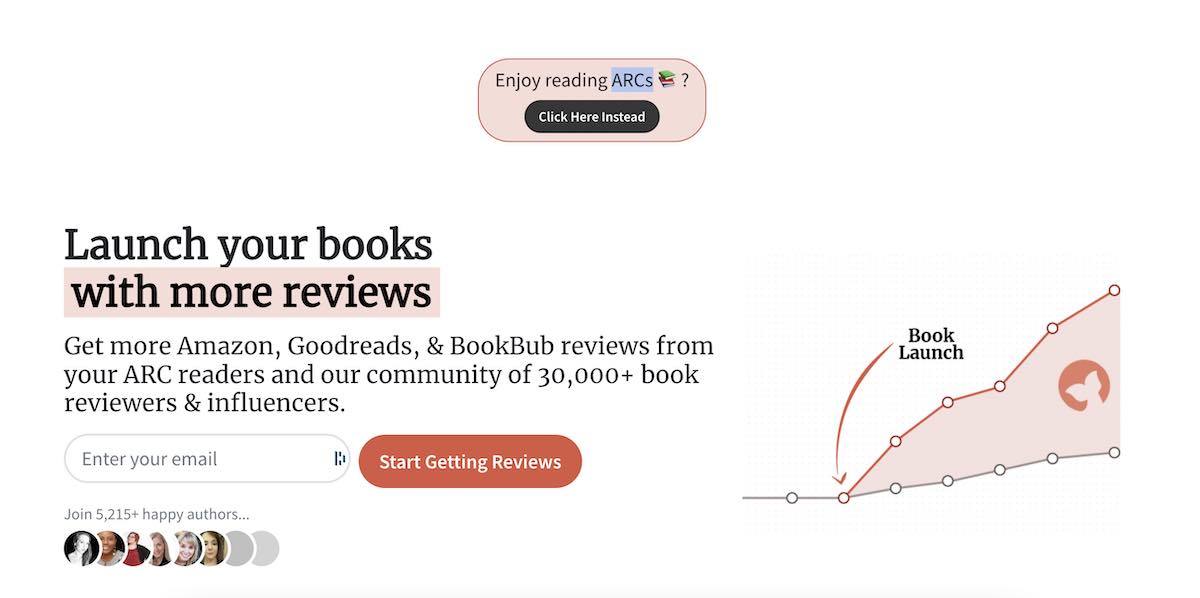
5. Add your book to review sites
Outside of influencers, you could also raise awareness for your ebook by leveraging current readers. Reviews are incredibly valuable for authors. If you offer your book on Amazon, you can view reviews there. However, you may also want to make sure it appears on sites like Goodreads, Storygraph, and Reedsy Discovery.
You can even reuse some for testimonials on your website to increase your conversions.
6. Pair your ebook with an online course or coaching program
If you’ve hosted online courses or coaching services, you’ve likely created tons of written resources to support your programs. It might make sense to compile those learning materials into a short ebook. You also probably have an engaged, built-in audience who may be interested in having some resources all in one book format.
Many creators create ebooks to support their other products, especially courses, and vice versa. For example, JoClub hosts live journaling sessions and sells journaling prompts.
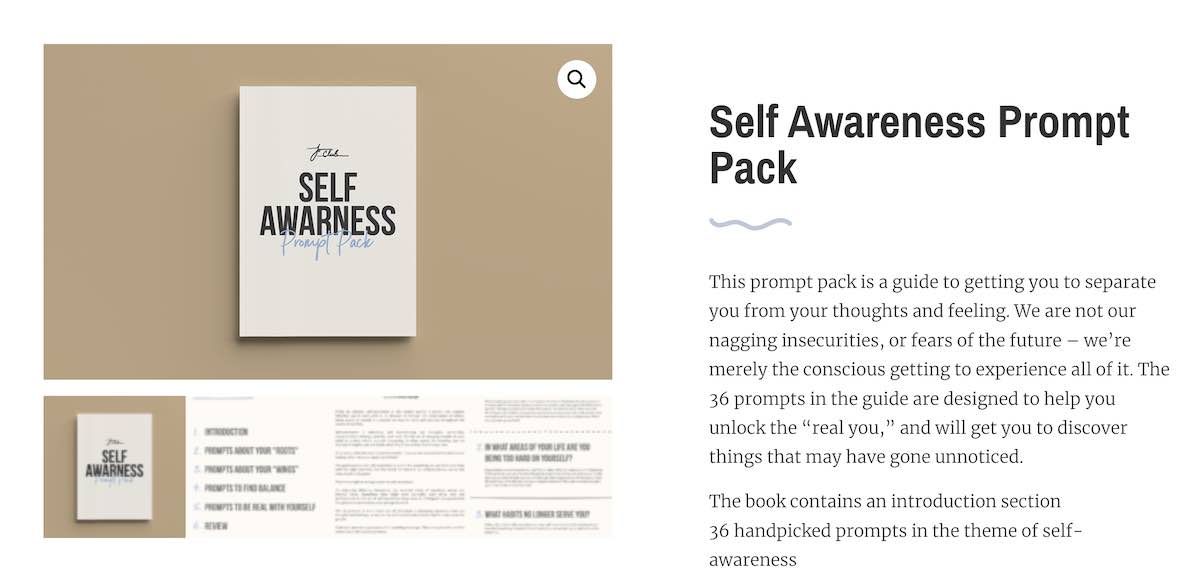
The idea is not to overwhelm your students or clients by promoting your book. However, repurposing your content into different formats can add value to them, and help you reach other audiences.
7. Use video marketing
Video marketing is not only more effective than ever but it’s also expected. According to a Wyzowl survey, 91% of consumers prefer branded content in video format.
Also, 96% of people look for videos to research a product or service, and 80% say it influenced their buying decision. Including video in your ebook marketing strategy can help people get to know you and your expertise better.
Share excerpts and learnings from your ebook in short-form videos. For example, if you wrote a guide on Figma for web developers, feature a few of the tips, projects, and tools that you mention. Instead of trying to cover everything in one long video, break it up into a series of shorter videos. Then, post it to your most active social media channels. You might want to consider Instagram Reels, TikTok, or YouTube Shorts.
8. Host a social media book club
Another way that you can leverage social media is by hosting a book club or community. You can create a community or run an informal live Q&A for your existing audience. You’ll want to give your audience enough time to read ahead and prepare discussion questions.
Alternatively, you can partner with a book club or group that aligns with your niche. For instance, if you wrote a finance book, you could partner with a group like Female Invest as a guest speaker.
9. Promote it in your newsletter
Email marketing has one of the highest rates of engagement while being cost-effective. On average, email marketing generates $36 for every $1 you spend.
It’s also one of the best channels for distributing content and sharing updates like a new ebook. For one, you don’t have to pay to get your message in front of your audience. They’ve signed up for your emails, so it’s free to communicate and you don’t have to compete as much for their attention as you do on social media.
Someone who is subscribed to your newsletter is much more likely to be interested in your book than a complete stranger. To build your email list, you should first set up a newsletter sign-up form on your website.
Teachable creator Aliza Kelly includes a sign-up form that’s easy for a visitor to fill out with their name and email address. She also includes a short sentence on why they should sign up and what they’ll get in their inbox. If you use Teachable, you can integrate email marketing platforms like Klaviyo, ActiveCampaign, and others to host your newsletter.
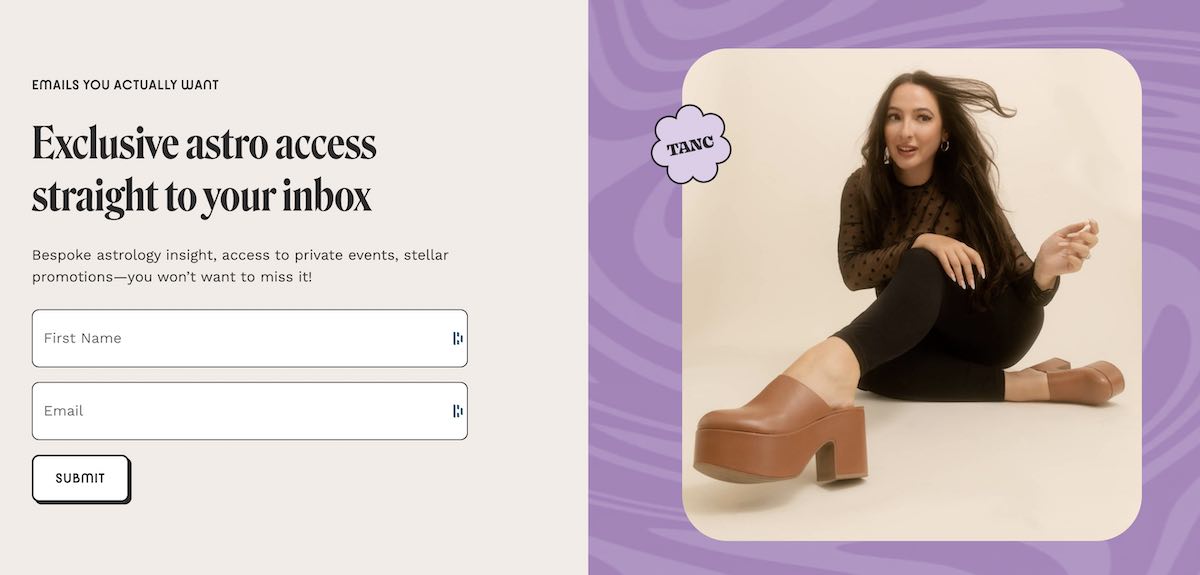
You can also host your newsletter for free on a platform like Substack, with the option to make a newsletter for paying subscribers.

10. Create excitement with a waitlist and launch event
If you have an engaged audience, it might be fun to include them in the behind-the-scenes or making of your ebook. It can also drum up excitement for your book before it’s released. You can begin collecting pre-orders for your book before it’s available on your launch date.
However, remember to put it all in perspective for your audience. How will your ebook bring them value? What will it change in their lives? Of course, releasing an ebook you put time and effort into is important for you. But, your audience will want to know how it can help them and why they should care.
Let’s say you created an ebook on planning weddings. You could create a wedding-themed launch event or market. Then, partner with local wedding vendors and caterers and invite soon-to-be brides from your audience to attend. You’re promoting your book, but you’re also creating an experience that can also help your audience plan for their own weddings.
11. Develop SEO articles
If you can appear at the top of the search results for relevant searches or keywords, you can increase your website traffic and brand visibility for free. Organic search makes up about 23% of all site traffic for most sites.
Search engine optimization or SEO is structuring and improving your content and entire website so that it’s more likely to appear on the first page of search results. You’ll focus on searches your target audience will most likely make.
For example, if your expertise is in building products, you might create content around topics or keywords like:
- Product management
- How to become a product manager
- Product-market fit
Similarly, someone who focuses on helping creators grow their YouTube channels, might create content like:
- Best cameras for YouTube
- How to make a thumbnail for YouTube
- How to get YouTube sponsorships
To discover topics your audience is interested in, review frequently asked questions or pain points. Then, brainstorm a list of relevant keywords related to those. From there, you can look at the monthly search volume—how many people search a word or phrase each month—with tools like Ahrefs. You’ll also want to view the keyword difficulty—how competitive or hard it is to rank for the term.
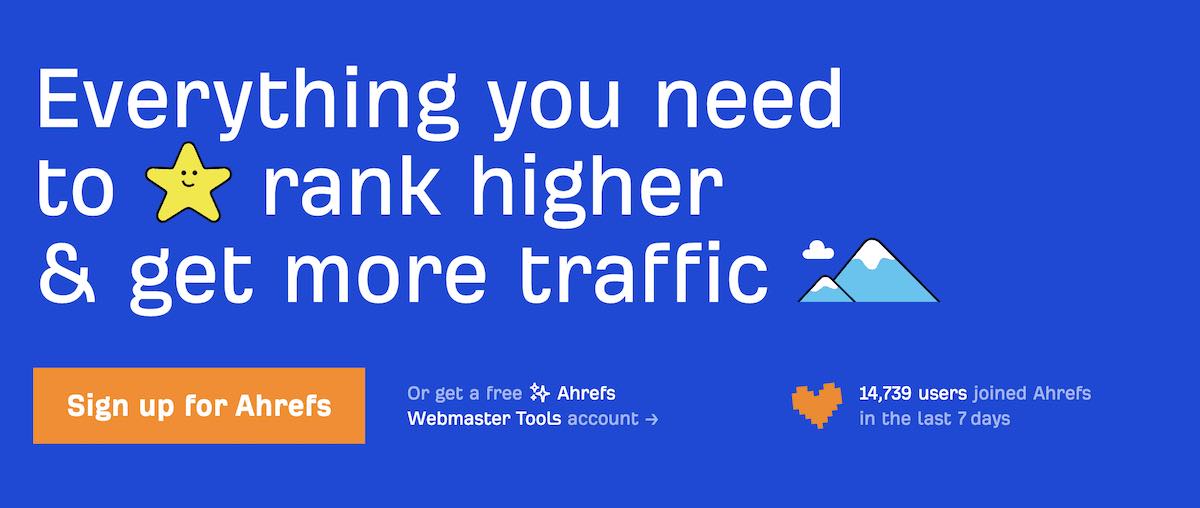
Writing blog articles can also help you build a foundation for a full ebook. Each blog could be a mini-chapter or outline.
12. Run paid ads
Running paid ads on Google search or social media (Facebook, TikTok, Instagram, Pinterest, etc.) can expand your audience and help you reach new potential customers. However, they can also be quite expensive, especially if you’re an independent creator.
Paid ads are PPC or pay-per-click advertising, so you’ll pay for each click regardless of if someone buys your book. If you have experience with paid marketing or the budget to run ads efficiently, then it can be worth it.
You may want to hold off until you’ve tested other organic channels. Then, you’ll have a better understanding of what messages, content, and designs resonate best with your audience.
With Teachable, it’s easier than ever to create an ebook and other digital downloads. You don’t need to know how to code or build a website. To get started, all you need to do is sign up with a free or paid plan. Then, you can upload your ebook, sell it, or offer it for free on your website.
FAQs
How long should an ebook be?
You’ll usually measure the length of an ebook by word count rather than by page. The length of an ebook varies based on the genre and purpose.
For example, if you’re self-publishing a novel on Kindle, it will likely be around the same length as a print edition. That’s typically 50,000 to 75,000 words. A children’s book is much shorter and has more illustrations than words.
Short ebooks are what you usually see as lead magnets. They’re typically a few pages and 2,500 to 7,500 words long.
Join more than 150,000 creators who use Teachable to make a real impact and earn a real income.


%201%20(1)%20(1).png)

.png)
.png)
